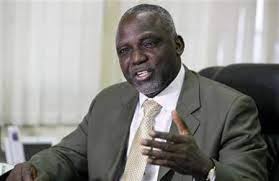The widening gap in the prices of energy unit across the country can be mitigated by adopting uniform electricity tariff across all states of the federation.
This is the position of the Manufacturers Association of Nigeria, MAN, in a recent press statement.
Expressing great concern over this situation, the Association said discriminatory power tariff imposed across different states by the Electricity Distribution Companies (DISCOS), does not make for competitiveness.
It would be recalled that discos in Lagos reverted the tariff to the previous rate, which was one of the Labour demands for suspending the nation-wide strike recently, same applied to other discos across the nation.
Nonetheless, MAN is asking the Federal government to weigh in on the situation and make the discos apply uniform tariff to facilitate manufacturing activities across the country.
MAN president, Mansur Ahmed, said disparity in electricity tariff has been observed to favour some regions over others. It therefore called for uniform tariff, establishment of equalisation fund as it operates in the petroleum sector to sustain discos in regions with low economic activity.
He spreads his concern, “Most worrisome is the fact that manufacturers who are made to pay higher tariffs, which in some instances the difference are as high as 25%, making it impossible to ensure fair competition amongst manufacturers who sell their products in the same market and cannot effects of wider gap in the prices of products.”
The implication of the price differential was also stated, “The resultant effect of this tariff differential is that manufacturers under the discos with higher tariff rate sell at a loss in order to sustain the market share and if action is not taken urgently, the affected manufacturers may be forced to close down with looming adverse effect on employment and the economy.”
“The inadequacy of electricity supply has been one of the major challenges hindering the competitiveness of manufacturing spent over 40% of the production overhead on electricity leading to increase in cost of operation and prices of made in Nigeria goods when compared with prices of similar products from other countries,” the statement read.
Ahmed applauded the federal government for policies aimed at sustaining economic growth and the development of the manufacturing sector in Nigeria particularly the ongoing efforts at improving the quality of reliable electricity supply in the country.
“It is therefore worthy to note that improvement in electricity supply in terms of quantity, quality, efficiency in service delivery and pricing is critical to the competitiveness, growth and development of the sector, this we believe is a recipe for sustaining the employment of over 65 million direct and indirect workers in the manufacturing sector,” Ahmed said.









































